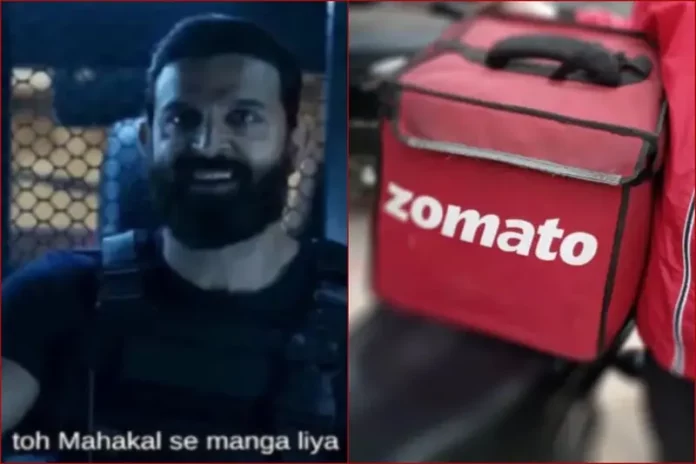This certainly was not the first time, but #BoycottZomato began trending on Twitter on Sunday after a priest at Ujjain’s Mahakal temple expressed disappointment with an AI-driven ad starring Hrithik Roshan.
The ad reveals that the actor ordered food from Mahakal because he was in the mood for a thali. The ad referred to a restaurant of the same name, but it quickly fell prey to online trolls, with leaders of abandonment cultures beginning to speak out against food aggregators and delivery platforms for “offending religious sensibilities.”
“Thaali khane ka man tha, Mahakal se mangaa liya,” says @iHrithik in an advertisement.
Mahakal is a deity to be worshiped, not a servant who brings food to those who ask for it. In a swift response, Zomato withdrew the ad by Sunday night, issued an apology, and explained that her intention was never to hurt feelings.
But the incident once again highlights the blurry lines that brands are pursuing in their recent marketing communications. And when ads are generated by AI, things get even more complicated. So how can brands cope with technology-driven advertising in a world so sensitive and polarized? Insiders in the sector think it’s critically to include human interaction throughout the entire course. After all, advertising targets your target audience as well as the product you are promoting.
An unnamed creative director said: We still talk to people and brands forget that these days. That is not to say the anger at Zomato’s ad is right, though, but if the brand had recognized the problem now, it would have recognized it earlier in the process.”
Priyank Narain, the executive creative director at Grapes, agrees that it is terrible for Zomato that they had to take the advertisement down because it appeared to be apparent what it was advertising—the Mahakal restaurant. “The advertisement’s purpose seems to be pretty obvious. We can all agree that it is evident that you cannot place an order from a mandir.
Why didn’t the mandir bother to contact the restaurant and have their name altered if they had to be so sensitive about it?
Subodh Chaubey, Creative Director of Contagious Ads, said: The target market has only changed to include those who consume the brand’s content as well as the product’s eventual consumers. Therefore, it also makes sense to have human intervention in all technology campaigns to anticipate these red flags. “
His PR expert in Mumbai, Zaheer Chauhan, suggested a similar solution, stating: As a responsible brand, it was a wise decision to stop advertising. Brands should be wary of such outcomes and identify the right mix of advertising variables. If you go too hyperlocal with deepfakes, you have your own problems because you can’t control them. “
Follow and connect with us on Facebook, LinkedIn & Twitter.

